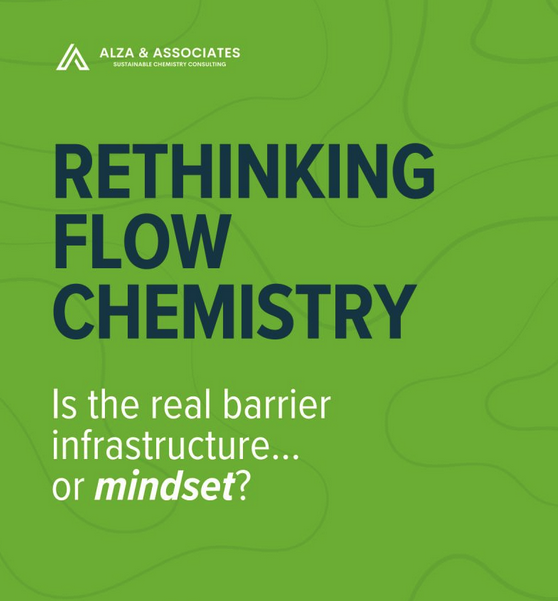In many industrial contexts, flow chemistry is still perceived as an emerging or optional technology, usually something to “try out” when batch reaches its limits.
But this perspective underestimates its true impact. Flow chemistry is not merely a tool. It represents a paradigm shift.
The transition from batch to continuous processes is not only technological, but epistemological.
It challenges the way we commonly:
🔹 Conceptualize reactions
🔹 Design control systems
🔹 Define safety protocols
🔹 Measure efficiency
It shifts the chemist’s role from isolated reaction management to integrated process engineering.
💡 While infrastructure is often cited as the main barrier (reactor design/availability, flow control equipment, CAPEX), the real challenge lies in the mindset. Traditional workflows, especially in pharma and fine chemicals, are deeply rooted in batch logic: stepwise procedures, compartmentalized stages, single-variable experimentation.
Flow chemistry, by contrast, demands a new way of thinking:
⚙️ Continuous, rather than segmented, with 24/7 operation goal in mind
📊 Data-driven, rather than intuition-based, allowing automatization and optimization
🔁 Systemic, rather than linear — reproducible and highly controllable
This shift requires not just training, but organizational transformation. This involves R&D, engineering, QA/QC, and operations. It’s not a plug-and-play upgrade; it’s a culture shift.
At Alza & Associates, we see this transition not as a technical migration, but as a strategic evolution. One that enables safer, more efficient, and more sustainable processes.
So we ask:
👉 Is your barrier to flow chemistry truly technical?
Or is it structural, organizational, even cognitive?
We are here to help you!

